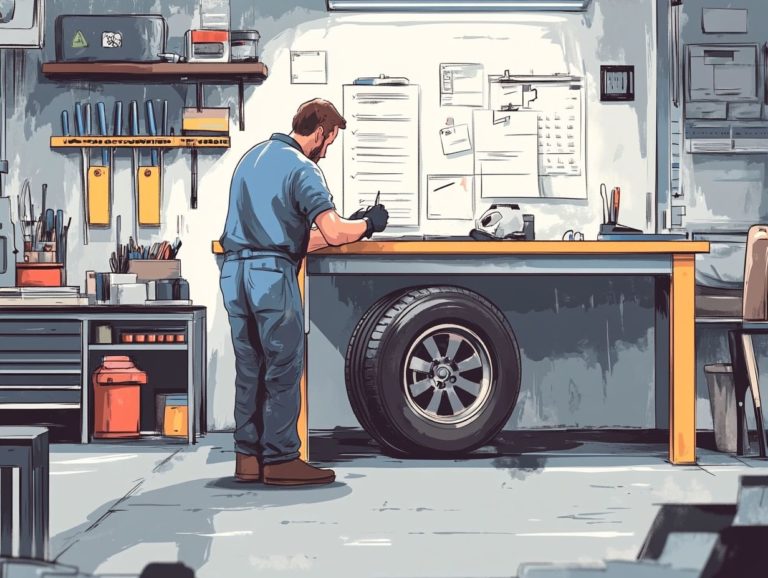Understanding Used Car Depreciation
Car depreciation is an unavoidable part of vehicle ownership. This process significantly impacts buyers and sellers alike.
As time passes and mileage increases, the value of your car naturally declines. This decline is shaped by various factors such as age, make, model, and current market trends.
This guide provides a clear breakdown of car depreciation, delves into the elements that influence it, and presents practical tips to help you reduce its impact.
Whether you re contemplating the purchase of a used car or seeking ways to preserve your vehicle’s value, the insights here will empower you to navigate the complexities of car depreciation with confidence.
Contents
Key Takeaways:
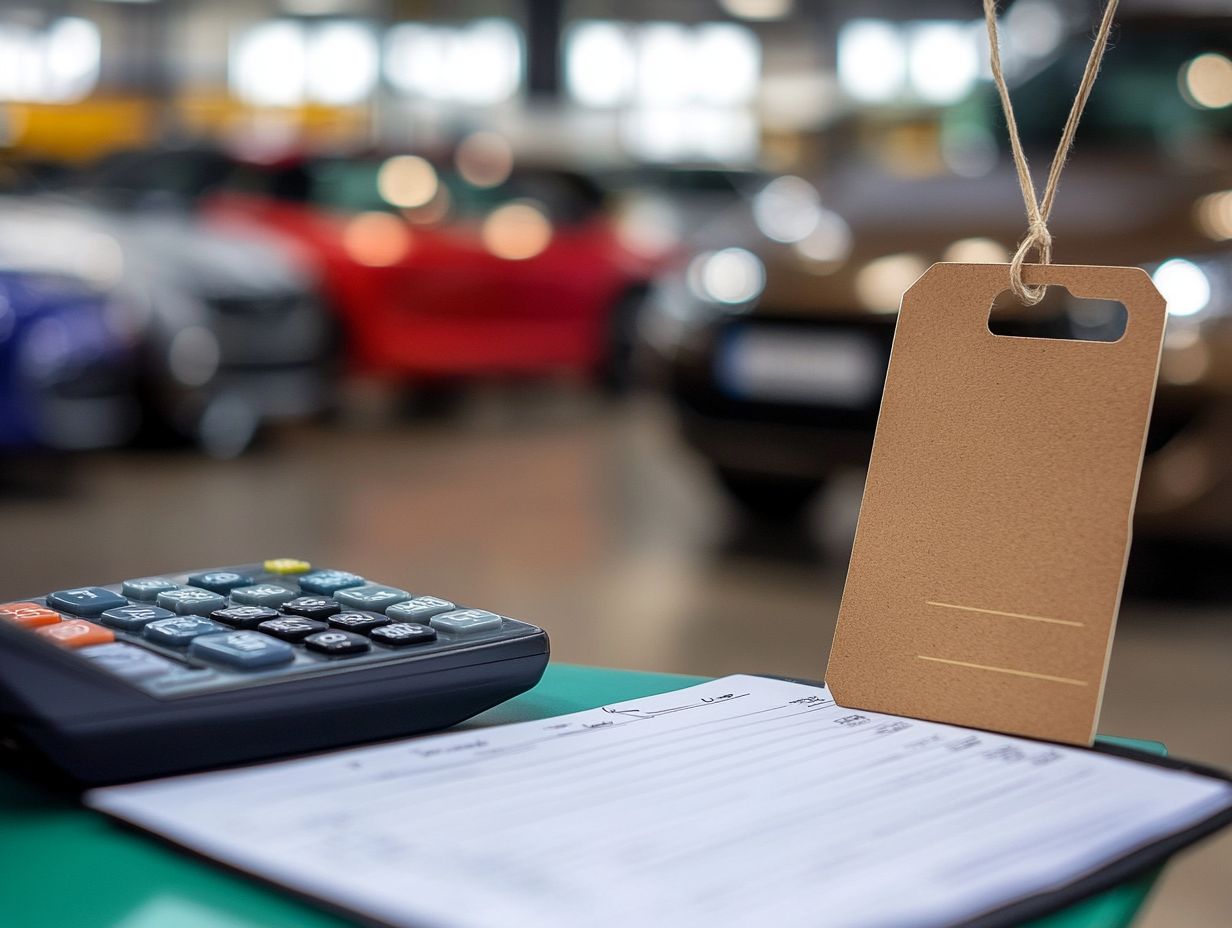
- Car depreciation is the decrease in the value of a car over time, influenced by factors like age, mileage, and market demand.
- Minimize car depreciation by maintaining your vehicle and choosing a reliable make and model.
- When buying a used car, consider its depreciation rate and maintenance history to get the best value.
What is Car Depreciation?
Car depreciation is the gradual decline in a vehicle’s value over time. It is influenced by factors such as wear and tear, mileage, and current market trends. It s essential for anyone buying a car to understand how depreciation works, as it significantly affects the total cost of ownership and the vehicle’s resale value.
Different vehicles, like the Honda Civic and Toyota Tacoma, experience varying depreciation rates. Luxury models such as the BMW 7 Series and Porsche 911 also have unique depreciation patterns. Understanding how depreciation affects your investment and its financial implications ensures you make informed decisions that protect your assets.
Factors That Affect Car Depreciation
Several key factors influence car depreciation, shaping how swiftly your vehicle loses its value over time. Elements such as age, mileage, make and model, and prevailing market trends are crucial in assessing a car’s worth.
For example, popular models like the Honda Civic and Toyota Tacoma tend to depreciate differently than luxury vehicles such as the BMW 7 Series or Porsche 911. This difference is primarily due to variations in market demand and economic conditions. Understanding these dynamics can help you make informed decisions about your vehicle investment.
Age and Mileage
Age and mileage are among the most significant factors influencing your car s depreciation. They directly impact the vehicle’s overall condition and market value. Typically, the older a car is, the more it depreciates. Additionally, higher mileage often leads to increased wear and tear, which can hurt resale value.
Grasping how these elements interact allows you to make informed decisions about maintaining your car’s value and maximizing your investment.
As your vehicle accumulates miles, essential components like the engine, transmission, and brakes endure stress. This can lead to repair needs that further diminish its value. New cars tend to experience substantial depreciation in the first few years, primarily due to age and the rapid decline in perceived worth once they leave the lot.
On the flip side, used vehicles can retain value better if they ve been well-maintained. This underscores the importance of regular servicing.
It’s essential to recognize that while mileage indicates usage, age might reflect technological advancements. This means that newer used cars can still be appealing despite having higher mileage. This intricate relationship highlights the necessity of thorough research and a solid understanding of car depreciation to effectively navigate the market.
Vehicle Make and Model
The make and model of a vehicle play a crucial role in its depreciation, which is the decrease in a vehicle’s value over time. You ll find that certain brands are celebrated for their reliability and lower depreciation. Popular choices like the Honda Civic and Toyota Tacoma generally hold their value better than luxury vehicles such as the BMW 7 Series or Porsche 911, which often face steeper declines.
By understanding the depreciation traits of various car models, you can make informed choices that help your investment maintain its worth over time.
Take, for example, the enduring appeal of brands like Subaru and Lexus. Their popularity often leads to less dramatic drops in resale value, making them smart picks for those conscious of their budget. Similarly, models like the Ford F-150 have earned a solid reputation for strong resale values thanks to their utility and devoted customer base.
Luxury vehicles may tempt you with their upscale features. However, their rapid depreciation can result in significant financial setbacks.
By analyzing these trends, you enable yourself to make savvy decisions. This ensures that you invest wisely and select vehicles that meet both your performance needs and financial objectives.
Market Demand and Supply
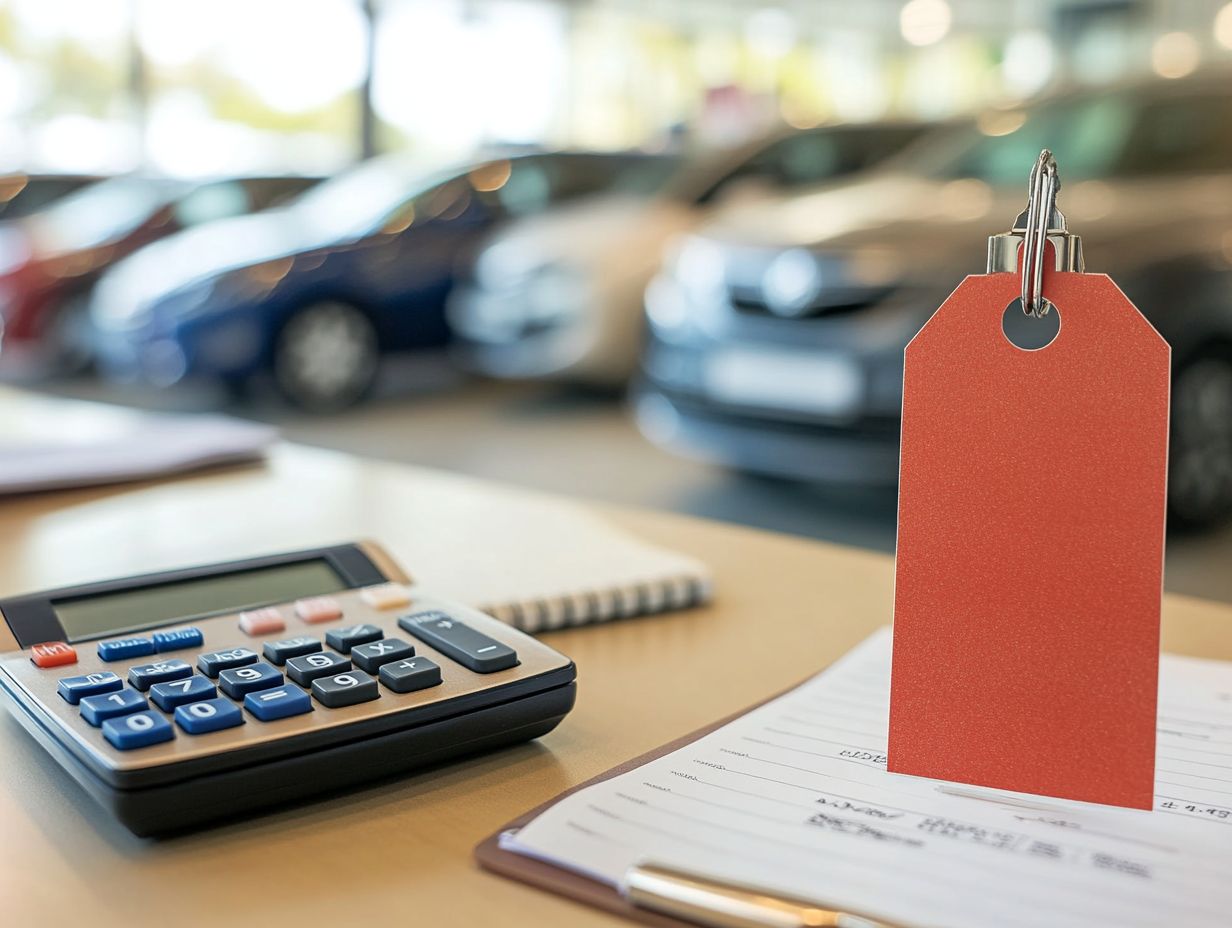
Market demand and supply dynamics are pivotal in shaping depreciation rates. These dynamics directly influence how swiftly a vehicle loses value in the resale market. If you re eyeing a popular car model, say the Jeep Wrangler or a sleek electric vehicle, you ll find that its depreciation curve often works in your favor, allowing it to retain its value longer.
On the flip side, cars with lower market demand often swayed by economic conditions tend to depreciate at a quicker pace, impacting their overall worth.
Take luxury brands like Audi and BMW. They frequently face steeper depreciation because of their higher initial costs and shifting demand, especially during economic downturns. Meanwhile, models known for their reliability and popularity, like the Toyota Tacoma, showcase a remarkable ability to hold their value over time. This illustrates how consumer perception and market forces are intricately linked.
A vehicle’s history, including any accident records or maintenance logs, can profoundly affect its resale value. This further highlights the intricate dance between supply and demand in the automotive market. Remember to consider these factors carefully before making a purchase.
Calculating Car Depreciation
Understanding car depreciation helps you take control of your vehicle investments. You can achieve this through several methods and formulas.
Utilizing tools like a depreciation calculator allows you to estimate how much value a car will lose over time. This can significantly inform your decisions regarding car insurance and the overall cost of ownership.
By making accurate calculations, you gain valuable insights that help you manage your expenses effectively and maximize your investment, whether you’re looking at new or used cars.
Methods and Formulas
You have several methods and formulas at your disposal for calculating car depreciation, like the straight-line method and the declining balance method. Each provides unique insights into how market conditions can influence a vehicle’s value.
Using a depreciation calculator can streamline this process for you, delivering quick and precise estimates of how much value your car might lose over time.
Additionally, consider using the sum-of-the-years-digits method, which allows for a more aggressive depreciation schedule during the early years of ownership. Each approach carries its own advantages. For instance, the straight-line method is simple and easy to grasp, while the declining balance method offers a more accurate reflection of reality by accounting for more significant depreciation in the beginning.
Market conditions like economic downturns, fluctuating fuel prices, and the rollout of new models can significantly impact these calculations. These factors can lead to variations in resale values, which are important for you to consider when evaluating your vehicle’s worth.
Smart Ways to Reduce Your Car’s Depreciation
Minimizing car depreciation is crucial for preserving your vehicle s value over time. There are several strategies you can implement to achieve this. By following a consistent maintenance schedule and being aware of how mileage affects your vehicle, you can significantly enhance its resale value and extend its overall lifespan.
Taking care of vehicles such as the Honda Civic, Toyota Tacoma, and luxury cars can maximize your investment while ensuring the reliability that comes with a well-maintained ride.
Tips for Maintaining Value
To preserve the value of your car effectively, prioritize regular maintenance. Follow specific tips tailored to your vehicle’s needs. If you own reliable brands like Honda or Toyota, keeping a detailed service history and proactively addressing maintenance costs can reduce long-term depreciation and enhance your resale opportunities.
One essential practice is to keep meticulous records of all services performed. This documentation acts as proof of your car’s upkeep and builds buyer confidence when it s time to sell.
For luxury vehicles like BMW or Audi, specialized care is crucial. Adhering to manufacturer recommendations for service intervals is essential. Routine inspections and timely oil changes can prevent costly repairs and ensure your vehicle runs at its best.
Keeping both the exterior and interior of your car clean and polished through regular washing and waxing significantly contributes to its overall appeal and value, no matter the price point.
Buying a Used Car: What to Consider
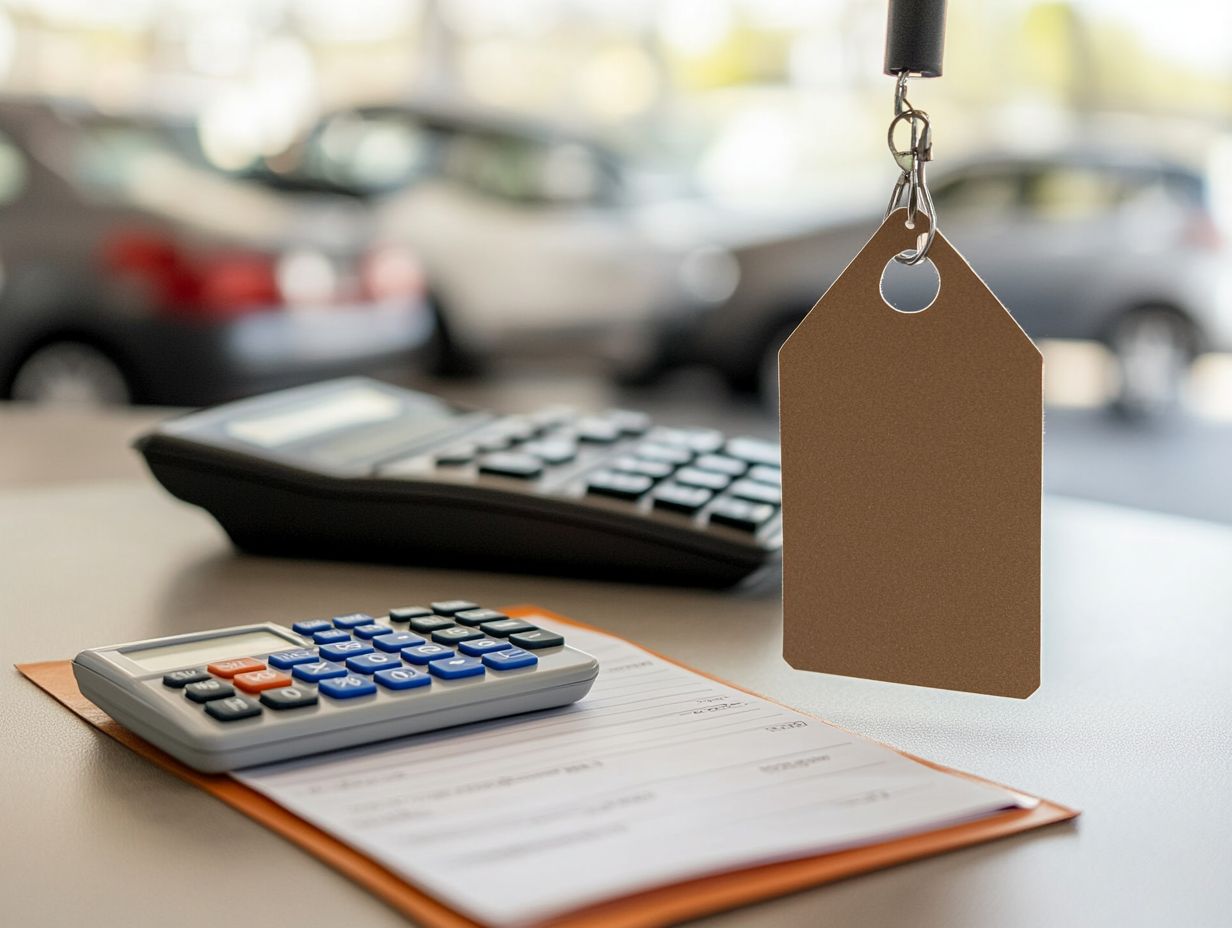
If you’re ready to buy a used car, there are several key factors to consider to make a sound investment. It’s essential to carefully assess depreciation and value.
Take the time to understand the vehicle’s history, explore options like certified pre-owned vehicles, and consider consumer preferences. These insights will guide your decision-making, especially for popular models like the Jeep Wrangler or Toyota Tacoma.
Assessing Depreciation and Value
Evaluating depreciation and value is essential when considering a used car. This involves looking at factors like the car model, current market conditions, and the vehicle’s unique number (VIN). Understanding the depreciation rates tied to specific models helps in making informed decisions that align with your investment goals.
Analyzing the vehicle’s history is equally important. Previous accidents and service records significantly influence its overall worth. The VIN is a unique identifier that offers valuable insights into the car s history and features that may impact its valuation.
Market conditions, such as demand fluctuations and seasonal trends, play a crucial role in pricing. You should also consider local market trends and competitor pricing when assessing how much a vehicle might appreciate or depreciate in the future. This ensures you secure the best deal possible.
Other Factors to Keep in Mind
When you’re considering a used car, look beyond depreciation and value. Take into account factors like the vehicle’s maintenance schedule and the long-term financial implications of ownership. Understanding the car’s lifespan, wear and tear, and how these elements affect its overall value is crucial for making a well-informed decision.
A thorough inspection of the car’s maintenance history can provide insights into whether the previous owner kept up with timely servicing. This is vital for the vehicle’s longevity. Be sure to also consider potential repairs and ongoing expenses, as older cars may require more frequent attention. Familiarizing yourself with a model’s reliability ratings and its past performance can guide your choice.
Ultimately, aligning these considerations with your budgetary constraints helps you avoid financial stress. This way, you can ensure that the vehicle you select meets your immediate needs while also serving as a wise investment for the future.
Frequently Asked Questions
What is used car depreciation?
Used car depreciation is the decrease in a vehicle’s value over time. This drop happens due to wear and tear, age, and changing market demand for that specific make and model.
How does understanding used car depreciation benefit me?
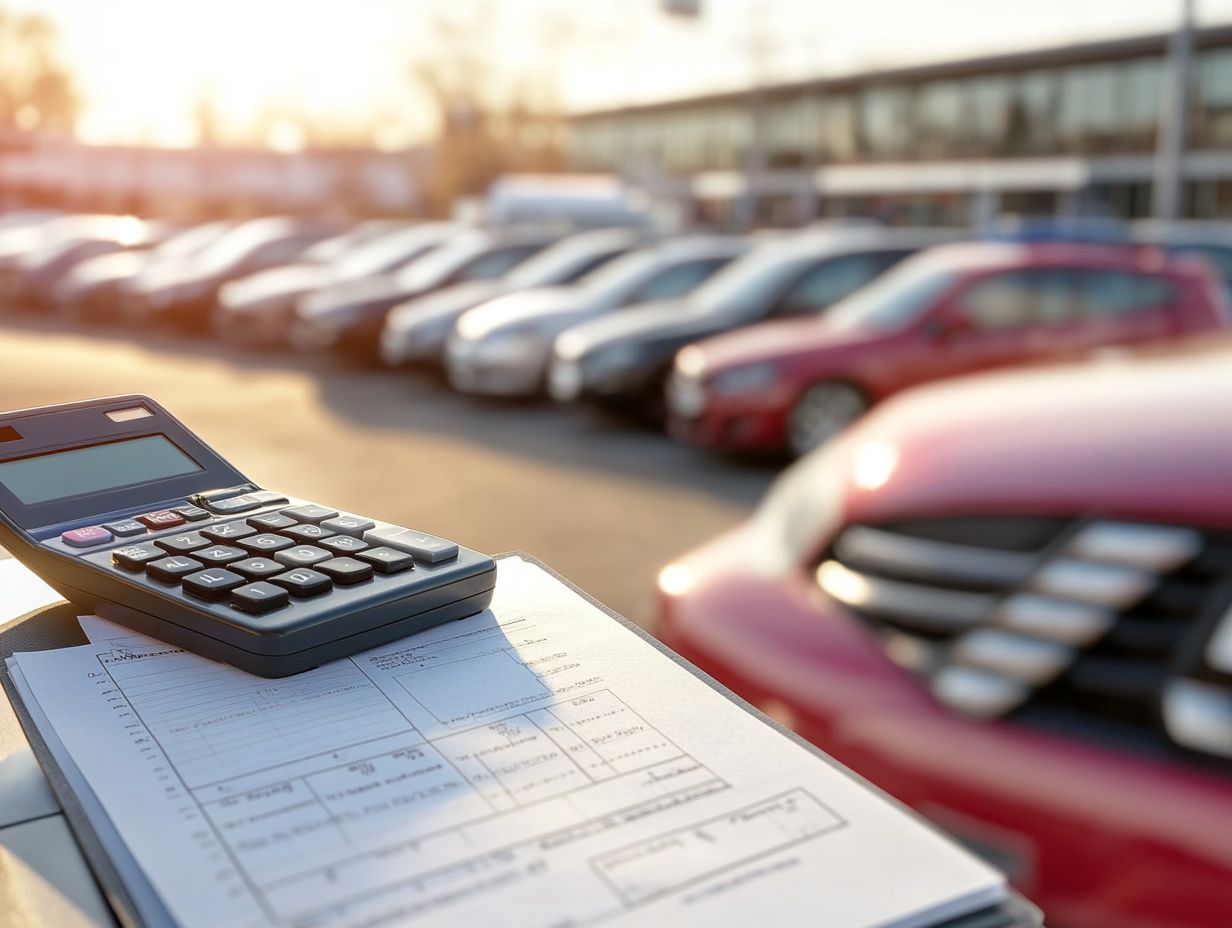
Understanding used car depreciation helps you make smart decisions. For instance, knowing what to know about new car depreciation allows you to estimate your vehicle’s future value and can save you money in the long run.
What factors affect used car depreciation?
Several factors affect how quickly a used car loses value. These include mileage, age, condition, supply and demand, and the model’s popularity.
Is there a specific time period in which a car depreciates the most?
New cars usually lose the most value in the first year. After that, depreciation slows, but each vehicle’s situation can differ.
Can I prevent used car depreciation?
You can’t completely stop used car depreciation, but you can lessen it. Regular maintenance, low mileage, and choosing a popular model help keep its value higher.
How can I estimate the depreciation of a used car?
Take charge of your purchase! Use online calculators to quickly find out how much your car might be worth in the future. These tools consider the make, model, mileage, and age to give you a good estimate.




